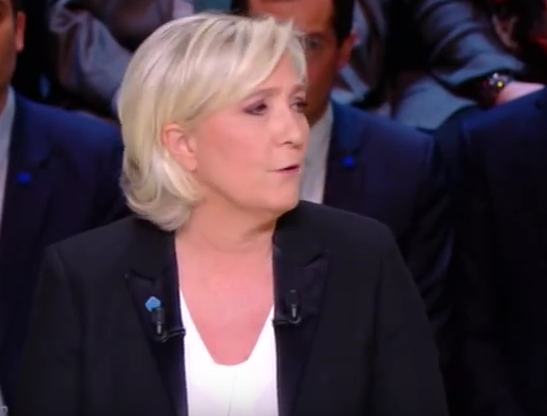By Natalia Castro
France’s presidential elections have already begun moving toward a runoff, with both major candidates unable to secure a majority in the first round of voting last week. While nationalist, independent candidate Marine Le Pen echoes a “France first” ideology that has trended recently throughout the Western world, En Marche candidate Emmanuel Macron remains slightly in the lead and the overwhelming establishment favorite to win.
Le Pen successfully garnered about 21.4 percent of the national vote, while Macron led the field with 23.9 percent. Despite earning about 20 percent each, Francois Fillon and Jean-Luc Melenchon both failed to secure their stop in the runoff as well, creating opportunity for Le Pen and Macron to make up ground.
Le Pen’s populist stance is not a new one in Europe, but rather represents years of economic discontent. France has had slow economic growth at best. France’s real Gross Domestic Product has not topped 2 percent since 2011 and not 3 or 4 percent since 2000. Despite soon to be former President Hollande running on the promise of economic recovering from the 2008 downturn, France has actually underperformed economically relative to Germany, the UK, and the US.
Le Pen has found one simple actor to blame — the European Union. As a long time euro currency skeptic, Le Pen has promised to return France to its economic prosperity through a “Frexit” from the euro. Her stance on immigration and national security mirror this nation-first mentality; she often discusses the need for the French to distance themselves from “the rule or threat of Islamic fundamentalism,” further condemning the rising influence of Islam in the country amid new terrorist attacks and the refugee crisis in order to maintain French identity.
Le Pen’s approach to combatting domestic and national security problems is simply a new take on an international trend.
The UK Independence Party was formed in 1993 on the basis of staying out of the euro currency and withdrawing from the crippling regulations and open borders of the European Union. Few expected these basic ideas to lead the UK to independence from the EU over 20 years later as it did in the successful June 2016 referendum.
Similarly, as the recession from the financial crisis has worn on throughout southern Europe, the Five Star Movement and its founder, one-time comedian Beppe Grillo have benefitted with support from disaffected voters on the left and the right; urging Italy to move away from the euro currency. Now Five Star appears to lead the polls early for the next general election in 2018. Similar currents swept Syriza to power in Greece in 2015 or led to the defeat of bank bailouts in Iceland via referendum in 2011.
Even in the United States, the tea party, founded in 2009, and Occupy, founded in 2011, captured similar political currents coming out of the financial crisis, on the right and left, respectively. The tea party successfully pushed Republicans to a House majority in 2010 and a Senate majority in 2014. Later, one can look at the candidacies of Bernie Sanders and Donald Trump as benefitting from those same economic anxieties brought on by globalization and job outsourcing, which ultimately helped Trump to win the presidency in 2016.
Le Pen has created a unique opportunity for herself; just weeks before the runoff, she has stepped down from her party, the National Front, in an effort to represent “all French people,” clearly only expanding her nationalist viewpoint. Just like Donald Trump was able to turn blue states with his approach, Le Pen is using her national unity appeal to attempt to turn voters from both sides her way.
Macron is the technocrat, centrist alternative to Le Pen and the media favorite to win; he is a supporter of the EU, agrees with much of France’s current economic and financial policies, and has been a fierce defender of open immigration policy.
While she still has more than a little ground to make up, Le Pen has already expanded her party’s base significantly. In 2002, when her father ran for the presidency he secured nearly all of the districts in eastern France; during last weeks election round, Le Pen swelled his influence to control districts surrounding Paris and moving further into central France. The Independent of April 2017 even continues to show that, “regional results pointed to political fracturing between the big cities and more rural areas that have historically suffered problems like poverty, unemployment and poor provision of public services.”
An electoral map easily shows, the people are split; but, Le Pen’s message of economic change and national pride are permeating France rapidly as it has for much of Europe. She has a chance, if a slim one.
From Brexit to the Five Star Movement in Italy to Greece and Iceland to the rise of Trump in the United States, the leadership of the European Union and other establishment institutions are being called into question. The French people will be the next to take to the voting booths in part to show their discontent with the establishment and globalization, which may not be enough for Le Pen to win but will be on display all the same. As France approaches a runoff election it is clear the country’s identity could be changing with the presidency. To the extent the issues dragging down economic growth and eroding national identity remain unaddressed, this may not be the last time Le Pen, only 48 years old, is heard from.
Natalia Castro is a contributing editor at Americans for Limited Government.







